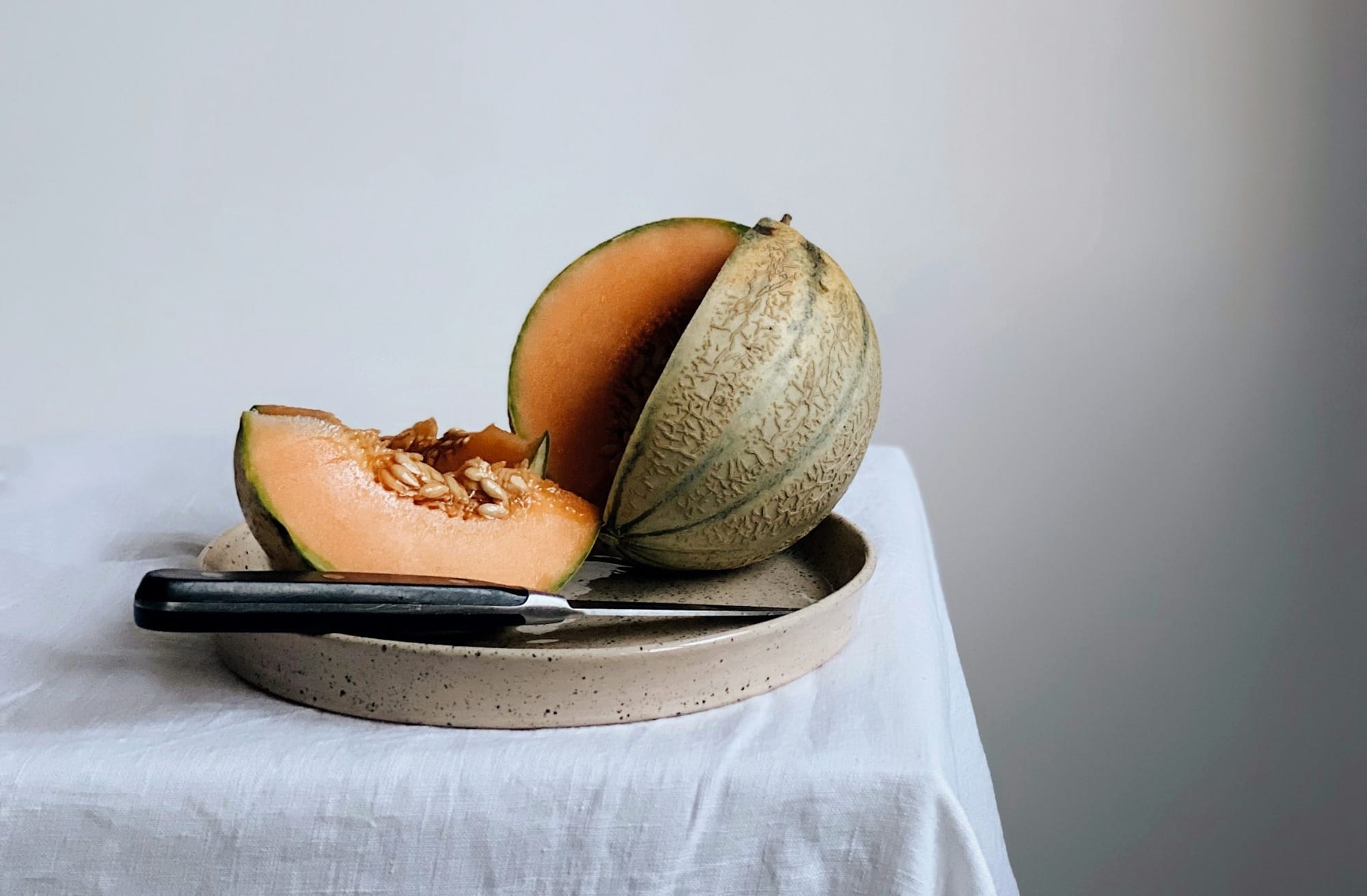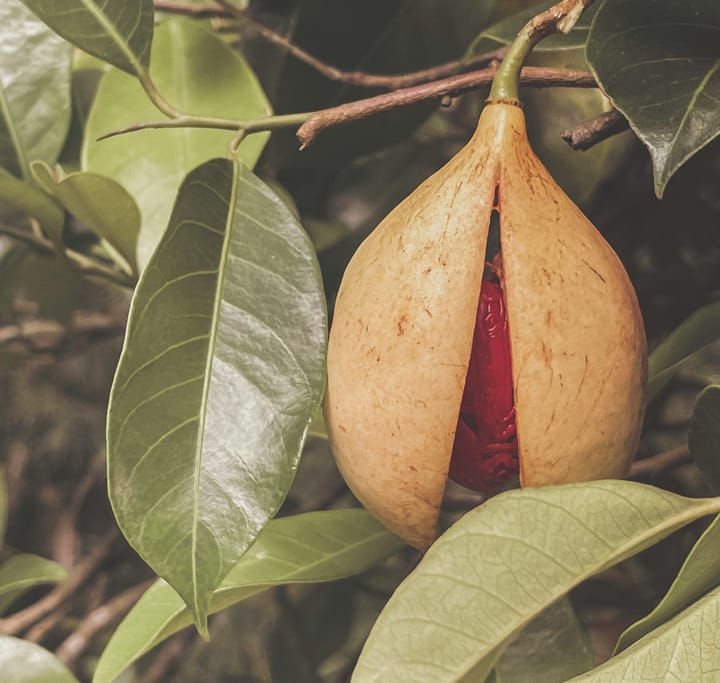Culinary Masterpiece: Exploring the Gourmet Potential of Yubari King Melon
What makes Japan's Yubari King melon the most coveted fruit in culinary circles? Discover the perfect orange flesh, honey-sweet complexity, and buttery texture that captivates chefs worldwide. Beyond its stunning flavor profile, what unexpected culinary adventures await?

In the realm of luxury fruits, few capture the imagination and command the reverence of Japan's Yubari King melon.
Grown with meticulous care in the volcanic soil of Hokkaido's Yubari region, these perfectly spherical treasures represent the pinnacle of agricultural craftsmanship.
With price tags that can rival a month's rent, these extraordinary melons aren't just food—they're edible art, cultural symbols, and gastronomic marvels all wrapped in a delicately netted rind.
As we explore the sensory delights, culinary possibilities, and comparative merits of this exceptional fruit, you'll discover why the Yubari King has truly earned its royal title in the world of gourmet cuisine.
Experiencing the Yubari King

Your first encounter with a Yubari King melon is a feast for the eyes. Its flawless, symmetrical exterior showcases a distinctive netting pattern over a golden-orange skin that signals perfect ripeness.
This artistic webbing isn't just beautiful—it's proof of the carefully controlled growing conditions and expertise of farmers who have refined their craft over generations.
When cut open, the Yubari King reveals its true glory. The vibrant coral-orange flesh glistens with natural sweetness, unlike the pale greens of honeydew or the salmon pinks of typical cantaloupes.
The aroma released upon cutting is extraordinarily fragrant—combining floral notes with hints of vanilla and caramel, a preview of the remarkable sweetness to come.
The texture is where Yubari Kings truly excel. Each bite delivers a buttery smoothness that melts effortlessly on your tongue. Unlike the sometimes fibrous texture of ordinary cantaloupes, the Yubari maintains a consistent silkiness throughout.
The flesh offers just enough firmness to provide substance without resistance, creating an almost custard-like eating experience.
The flavor profile is what justifies the Yubari King's legendary status. Its sweetness typically registers between 12-18 on the Brix scale (a measurement of sugar content), with premium specimens reaching as high as 19°Bx, significantly higher than typical melons.
But unlike artificial sweetness, the Yubari's flavor has beautiful complexity.
The initial wave of concentrated sweetness carries notes of honey and caramel, followed by subtle tropical undertones reminiscent of pineapple and papaya.
Most remarkably, this intense sweetness is balanced by a delicate acidity that keeps each bite as captivating as the first.
What truly sets the Yubari King apart from everyday melons is its umami quality—that elusive "fifth taste" that creates depth and satisfaction.
This savory undertone, rarely found in fruits, elevates the Yubari beyond mere sweetness into a realm of culinary sophistication that few fruits ever reach.
Kitchen Creations: Delicious Ways to Enjoy Yubari King Melon

While purists insist that Yubari King melons deserve to be enjoyed in their simplest form—chilled and sliced—creative chefs have discovered countless ways to showcase this premium ingredient.
The secret is to complement rather than overwhelm the melon's natural excellence.
In modern Japanese cuisine, Yubari Kings frequently appear in elegant fruit platters or as palate cleansers between courses.
Their premium status makes them perfect centerpieces for important celebrations, where the ceremony of cutting and serving the melon becomes part of the dining experience itself.
For a luxurious breakfast, transform Yubari King into a sophisticated parfait.
Layer diced melon with Greek yogurt infused with a touch of honey and vanilla.
Top with a light sprinkle of toasted pistachios for texture contrast without masking the delicate melon flavor.
Chilled Yubari King soup offers a refreshing summer appetizer. Simply purée the melon flesh with a small amount of fresh lime juice and a hint of ginger.
Strain for ultimate smoothness, then garnish with a small quenelle of crème fraîche and a few drops of aged balsamic vinegar.
The acidity and creaminess complement the melon's natural sweetness while preserving its distinctive character.
For a show-stopping dessert, Yubari King sorbet captures the essence of the fruit in frozen form.
The high sugar content creates an exceptionally smooth texture without requiring excessive added sweeteners.
A light infusion of lemongrass during preparation adds an aromatic dimension that enhances the melon's floral notes.
Serve in hollowed melon halves for a dramatic presentation.
In savory applications, Yubari King pairs wonderfully with delicate seafood.
Paper-thin slices make an excellent companion to sashimi-grade scallops dressed with a light yuzu vinaigrette.
The melon's sweetness complements the natural sweetness of fresh seafood while adding a refreshing counterpoint.
For an elegant appetizer, wrap small cubes of Yubari King in paper-thin slices of prosciutto di Parma.
This classic combination of sweet melon with salty, aged ham reaches new heights with the exceptional quality of the fruit.
Royal Rivalry: How Yubari King Compares to Japan's Elite Melons

Japan's melon culture extends beyond the famous Yubari King to include several other premium varieties, each with distinctive characteristics.
Understanding these differences provides insight into Japan's remarkable fruit culture and helps appreciate what makes the Yubari King so coveted.
The Crown melon, cultivated in Shizuoka Prefecture, stands as the Yubari's most significant rival.
Recognizable by its perfectly symmetrical shape and distinctive T-shaped stem, these melons undergo similarly rigorous cultivation practices using the "one tree, one fruit" method that has been perfected over the past century.
Crown melons can offer exceptional sweetness with Brix readings that can exceed 18 degrees, making them among the sweetest melons in the world.
Their flesh is typically pale green rather than orange, with a succulent, tender texture and a subtle, floral sweetness.
Price-wise, premium Crown melons can command similar or even higher prices than Yubari Kings, with standard specimens selling for around $200 and exceptional ones fetching thousands of dollars at specialty auctions.
Ibara King melons from Ibaraki Prefecture (not Okayama) present a different profile altogether.
Developed relatively recently in 2011, they are the result of combining an impressive 400 different melon varieties.
Their flesh can range from dark yellow to green, offering a smooth texture, refreshing sweetness, and elegant aroma. Flavor-wise, Ibara melons offer a cleaner, more straightforward sweetness without the complex umami undertones of Yubari Kings.
This makes them more accessible to palates unaccustomed to premium Japanese melons.
Their price point, while still premium, typically falls below both Yubari and Crown varieties, making them the most accessible of Japan's luxury melons and a common flavor for Japanese melon-based products.
The Andes melon represents a more accessible entry point into premium Japanese melons.
Cultivated across several regions, these melons maintain excellent quality control but without the extreme measures employed for Yubari or Crown varieties.
Their flesh tends toward a greener hue with sweetness levels averaging 12-14 Brix.
The flavor profile leans toward refreshing crispness rather than rich complexity, making them excellent everyday luxury items rather than special occasion indulgences.
What truly separates the Yubari King from these worthy competitors is its perfect balance of qualities.
While Crown melons may match its symmetry and Ibara melons its sweetness, only the Yubari consistently delivers the complete package: visual perfection, aromatic complexity, textural excellence, and that distinctive umami-enhanced flavor profile that creates an unforgettable tasting experience.
The cultivation methods for Yubari Kings remain particularly stringent. Each plant is limited to a single fruit, allowing all nutrients to concentrate in one perfect specimen.
The volcanic soil of the Yubari region imparts mineral notes that contribute to the melon's unique flavor profile.
These factors, combined with the shorter growing season of Hokkaido, create the specific conditions that cannot be replicated elsewhere.
In the hierarchy of Japanese luxury fruits, the Yubari King maintains its position not merely as an exceptional food item but as a cultural artifact—a testament to Japan's dedication to agricultural perfection and the elevation of nature's bounty to an art form.
Whether enjoyed in its purest state or incorporated into refined culinary creations, this remarkable fruit continues to captivate discerning palates worldwide.


